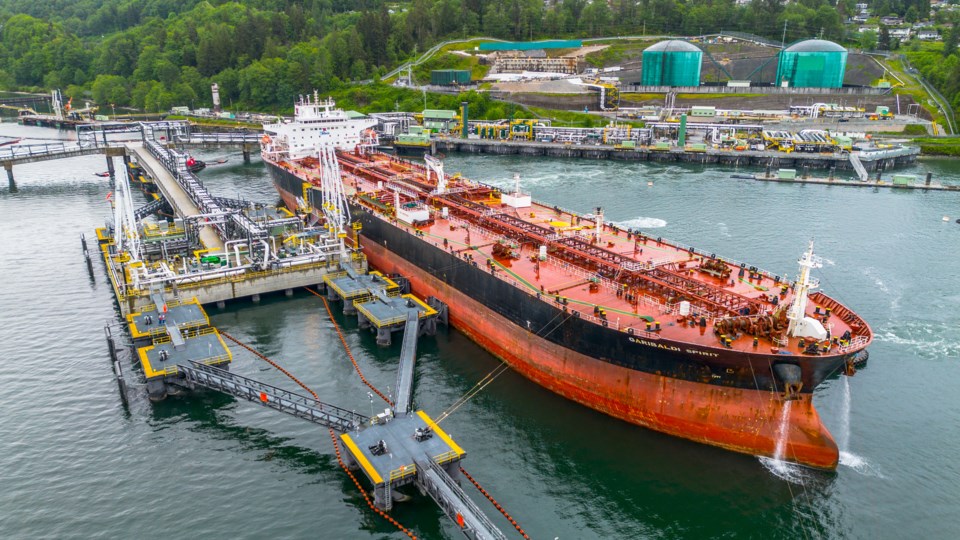China has quickly become a significant buyer of Canadian crude oil, thanks to the Trans Mountain pipeline expansion, according to an analysis from the China Institute at the University of Alberta.
“Contrary to many analysts’ expectations, early data indicates that a large amount of this new export capacity is finding its way not to California’s refineries, but rather to China,” say U of A researchers Daniel Lincoln and Philippe Rheault.
“This marks a noteworthy shift from Canada’s almost complete reliance on the United States as its predominant oil customer - a shift all the more timely given the context of recent travails in the Canada-U.S. bilateral relationship.”
The expansion of the Trans Mountain pipeline increased its capacity from 300,000 barrels per day (bpd) to 890,000 bpd, and an expansion of the Westridge Marine terminal in Burnaby increased oil tanker berthing capacity.
Some of the new exports have been going to California. But between May 2024 – when the expanded pipeline went into operation – and November 2024, $2 billion worth of crude went to China, Lincoln and Rhealt estimate in their Jan. 24 analysis. That accounts for half of the new exports.
“While these are early days and more time will be needed to draw a clearer picture, the trend is clear: China now regularly accounts for 50 per cent or more of all crude exported from the TMX pipeline," the analysts say.
The biggest buyer is Rongsheng Petrochemical, which operates refineries on China’s east coast, including an 800,000 bpd refinery in Zhejiang province.
“In sum, while the U.S. remains the largest market for Canadian crude oil, the TMX pipeline has facilitated China’s rise as a major buyer of Canadian crude, enabled higher prices per barrel for its exports from the Pacific coast, and broken the monopsony commanded by the US in Canada’s oil sector.”


